A day on the front line with the Rohingya refugees
A former member of the US Navy, Lucas Alamprese became a nutritionist as he wanted to do something that would make a difference in people's lives. As Emergency Surge Nutritionist for the World Food Programme (WFP), he is now at the forefront of efforts to fight malnutrition among Rohingya refugees.
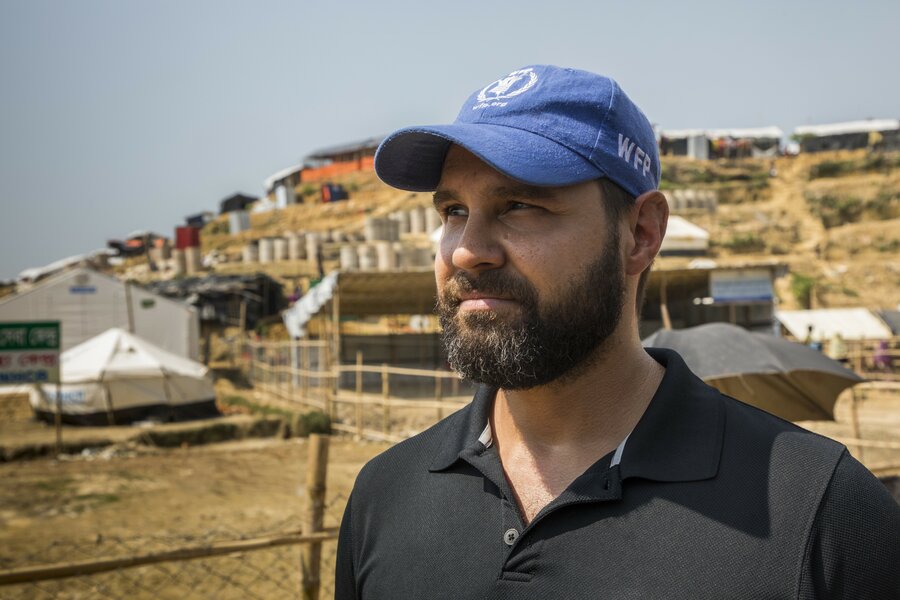
A recent joint nutrition survey, carried out by UNICEF, Action Contre la Faim, Save the Children, UNHCR and WFP, has shown that one in four Rohingya children arriving in Bangladesh is malnourished. As we sit in the makeshift containers that make up WFP's office in Cox's Bazar, Bangladesh, I ask Lucas to explain the work he is doing here.
The findings of the nutrition survey are quite daunting — malnutrition was already an issue in Northern Rakhine, where most of the people arriving here are from, and walking for days without food only made things worse. How are you tackling the situation?
The number one thing that we want to do is make sure that we reach the most vulnerable: children aged between 6 months and 5 years, pregnant women and new mothers. We want them to get ‘blanket' supplementary feeding, meaning that they all get nutritious food, regardless of whether or not they have been identified as malnourished. This is essential for the prevention of malnutrition.
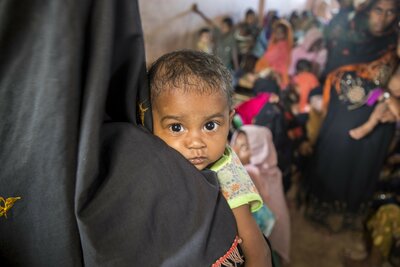
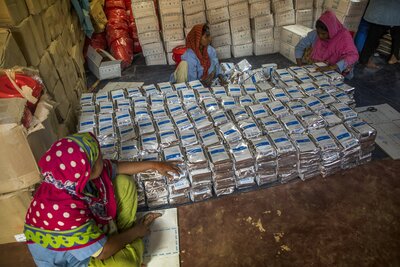
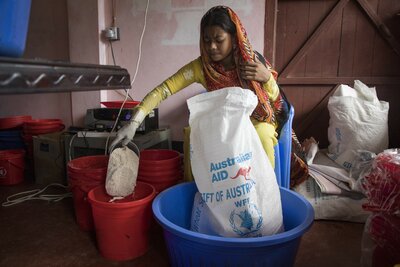
There are several agencies carrying out nutrition activities here in the camps — international agencies such as UNICEF, Action Contre la Faim, Save the Children and of course WFP, as well as national NGOs like SHED. At the moment, we are mapping the sites where nutrition support is given by different partners, so that we can ensure maximum coverage. We all strive to work together to ensure there is no duplication, as well as making sure there are no gaps.
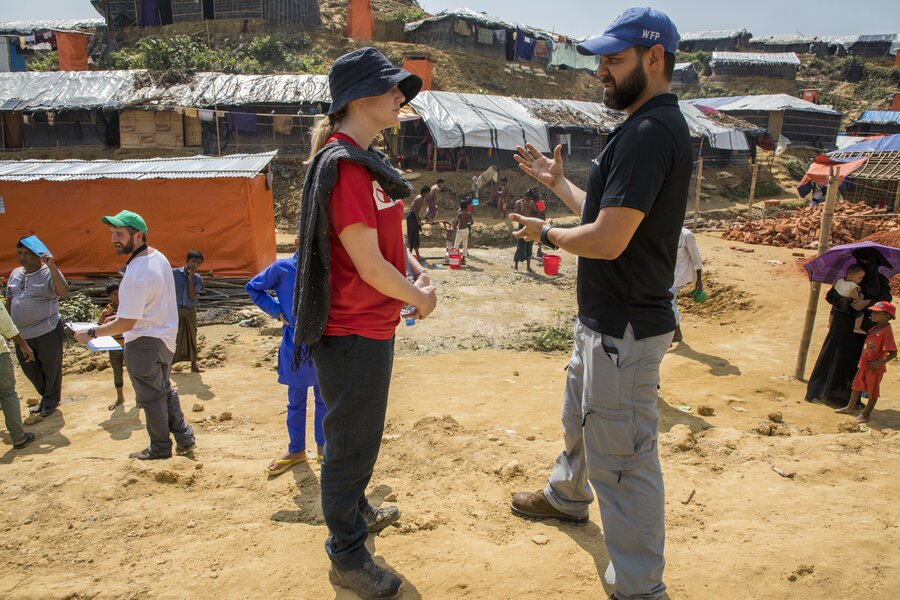
How do you reach out to the people who need nutritional support? You would imagine that a family that has a malnourished child would come to our nutrition centres, but that is not always the case. Through our partners, we have outreach volunteers that walk around the camps and go house to house to find mothers and children that may qualify for our nutrition programmes. Once identified, they refer them to the closest nutrition centre.
When we are out in the camps and see a woman with a child who could be malnourished, we ask them questions. We ask them if they have received any assistance from WFP or our partners, and if they know where they need to go to get food. Sometimes they may know, but they just do not go for different reasons. Maybe their husbands are not letting them go out because the centres are a bit too far, or they are not very familiar with the programmes and are not sure what goes on there.
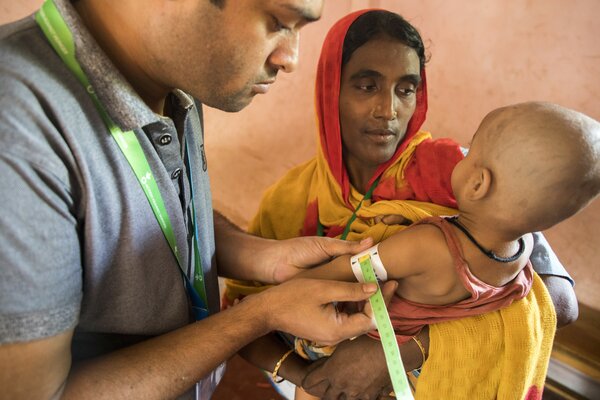
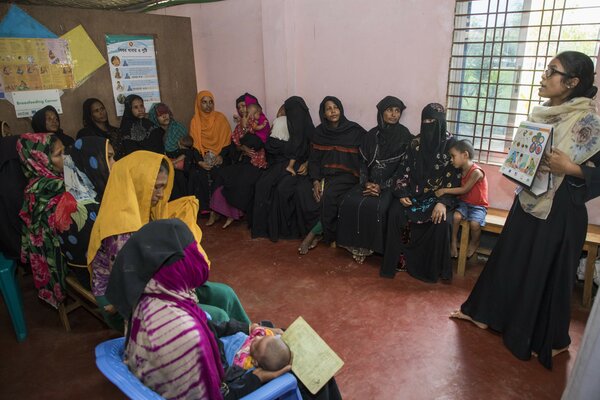
Our job is to ensure our outreach volunteers speak to the mothers and the fathers so that they are clear on what we are doing and why we are doing it. There are a lot of cultural and social issues to address and we need to be creative in how we go about this. We train our outreach volunteers and our staff so that they can give the appropriate messages.
Visiting the nutrition centres, I am always struck by how quiet these places are. You would expect a healthy child to be a noisy child — laughing, crying, playing. Does that strike you as well?
Yes, I have noticed that, and you will find that malnourished children tend to be less active. That is a good indicator of malnutrition. As you said, a healthy child would cry, play and run around, and just be a child.
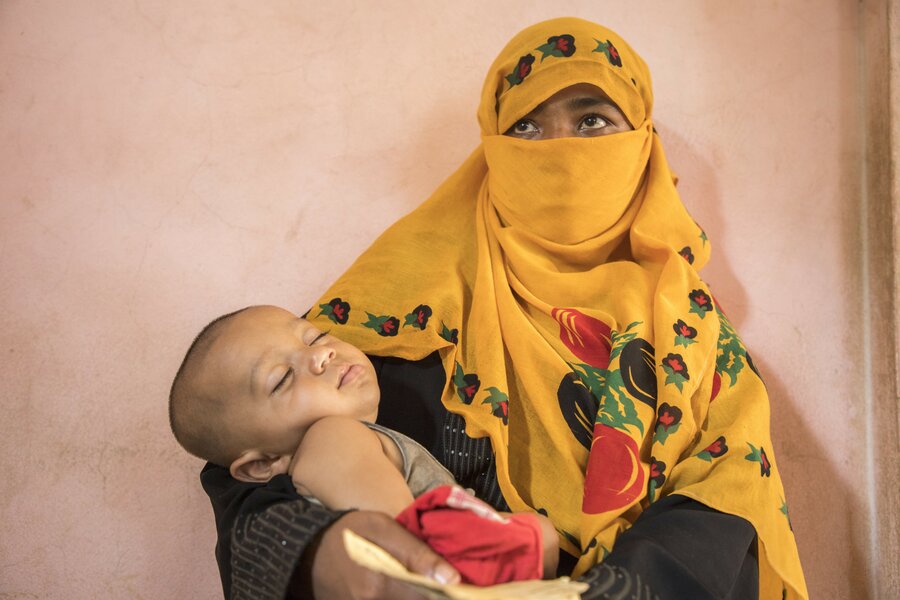
Of course, there could be other causes too — I imagine it is very scary for them to be in a strange place, surrounded by people they are unfamiliar with. Even the mothers are not chatting with one another for the same reason. All things considered, if a child not very active this is a big warning sign for malnutrition.
Considering that malnutrition rates are so high, what can WFP do to improve nutrition of people in these camps, aside from providing supplementary feeding?
Where we are giving people electronic vouchers as opposed to in-kind food, WFP has been monitoring their purchases. We noticed that they buy large quantities of rice and are overlooking other commodities that could be more nutritious. This is a big red flag for us. We have been looking at the food that is on offer, and suggesting shop keepers include some local nutritious foods to replace — at least in part — or complement the rice. Our suggestions include pumpkin and a kind of long, green bean that is available locally, as well as other foods that people are comfortable eating and would buy if they found them in the market.
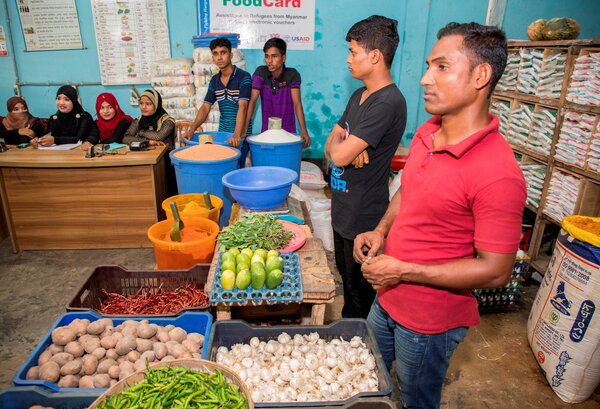
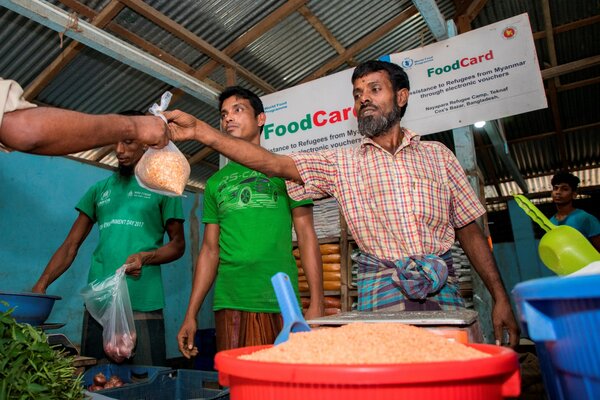
On a more personal level, you are here dealing with a massive humanitarian crisis. Tell me about your typical day.
Sometimes, my day starts even before I wake up. Last night I was dreaming about what I needed to do today. One day we may move two steps forward, and the next a step back as there are always challenges in this context, but we strive to develop solutions to overcome this. Every morning I sit at my desk and write down a list of things I must do. You have to be prepared as your day can be so unpredictable, so it is important to have your to-do list because many things could be overlooked when there is so much going on.
Here, no two days are the same. The biggest thing I did today was putting together a plan to meet with our partners so that we can organize and fast-track the distribution of nutritional supplementary food to all pregnant and breastfeeding women and all children between 6 months and 5 years of age. We need to get all the partners on board, so that there are no issues.
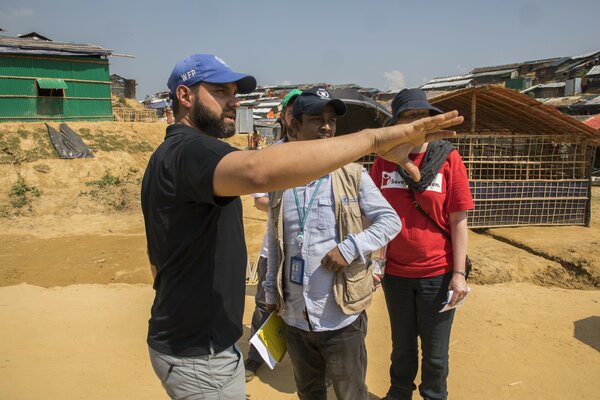
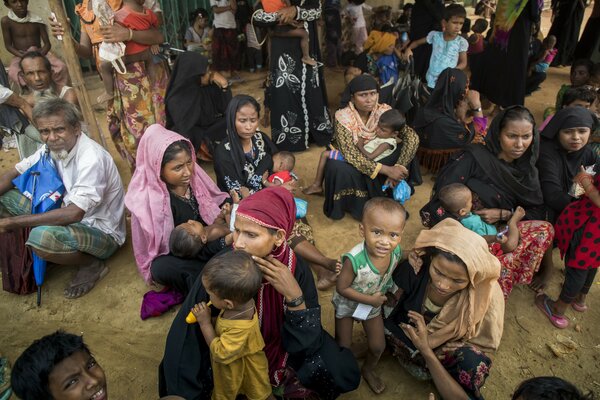
On another day we could be called to respond to a nutrition crisis at the border crossings. When this happens, we must be able to step into action in a matter of minutes. Recently, we were called to the Anjumanpara border point where UNHCR had observed a large presence of extremely vulnerable individuals among the new arrivals. We deployed right away to assess the situation and, keeping in mind the availability of staff, fuel, cooking implements and supply, we set up an ad-hoc distribution point for nutritious supplementary food to target these vulnerable individuals. On that day alone, we successfully supplied 400 children 6–59 months and 100 pregnant and breastfeeding women with supplementary food.
As the sun sets on your day, and you probably have to carry many of the things on your to-do list over to the next day, how do you unwind?
While it is absolutely important to have a work-life balance, you can't really turn off, you have to be vigilant and constantly check your emails, texts and phone calls because anything can happen at any time. The refugees won't stop coming just because the sun sets, so you are always on call.
Sometimes, you do get a bit of time to yourself and try to relax, but it is challenging. Small things like having dinner with friends, reading a book, working out or watching a programme can be very important. When you have such a busy schedule like this it's so important to take some time for yourself.
